VISIONS OF THE APOCALYPSE
WHEELER WINSTON DIXON
VISIONS OF THE APOCALYPSE
Spectacles of Destruction in American Cinema
 WALLFLOWER PRESS London and New York
WALLFLOWER PRESS London and New YorkA Wallflower Press Book
Published by
Columbia University Press
Publishers Since 1893
New York Chichester, West Sussex
cup.columbia.edu
Copyright Wheeler Winston Dixon 2003
All rights reserved.
E-ISBN 978-0-231-85048-3
Wallflower Press is a registered trademark of Columbia University Press
A complete CIP record is available from the Library of Congress
ISBN 978-1-903364-38-3 (cloth : alk. paper)
ISBN 978-1-903364-74-1 (pbk. : alk. paper)
A Columbia University Press E-book.
CUP would be pleased to hear about your reading experience with this e-book at .
Design by Elsa Mathern
Im the commandersee, I dont need to explainI do not need to explain why I say things. Thats the interesting thing about being the President. Maybe somebody needs to explain to me why they say something, but I dont feel like I owe anybody an explanation.
George W. Bush (in Ridgeway 36)
What we do now is withhold films from most of America, which is shocking. And what do we withhold? The best films. If you live 30 miles out in mall-land, you cant see all the great movies. Same with the rest of the world: we export the crap. And then we wonder why everybody hates us and has a distorted picture of what Americans are.
Meryl Streep (in King W4)
We dont always understand what happens to us, or why.
Olivier Assayas (in Dupont 18)
For Linda Ray Pratt
CONTENTS
T he author wishes to sincerely thank Linda Ray Pratt, Chair of the Department of English, and the members of the Department of English at the University of Nebraska, Lincoln (UNL), for their support during the preparation of this text. As always, Dana Millers superb skills as a typist made this manuscript possible, and Gwendolyn Audrey Foster assisted in the research for the book, as well as critiquing various drafts of the manuscript. Therese Myers did an excellent job with the copy editing of the manuscript. My thanks also to the staff of Wallflower Press for their help in the final presentation of this book, particularly Yoram Allon and Hannah Patterson. My warmest thanks also go to Dean Richard Hoffmann, whose continuing support of Film Studies at UNL makes projects such as this possible. Dennis Coleman, as always, contributed unique insights in the matter of the production and reception of the dominant cinema. Jerry Ohlinger provided the stills that illustrate this text, and numerous other friends and colleagues helped me shape the material in this book into its final form. Carol L. Inskip provided the index. My thanks to all.
Wheeler Winston Dixon

T his is a book about the end of cinema, the end of the world, and the end of civilization as we know it. The signs are there, waiting to be deciphered. The worldwide proliferation of nuclear arms, including North Koreas decision to resume nuclear weapons production, assures that sooner or later one of these violently destructive devices will be used, either by some sort of constituted government, or by terrorists seeking to gain the upper hand. Natural resources are being depleted, the polar ice caps are melting, rogue states pop up with increasing frequency, and international politics are fraught with tension and deception. And other than a few desultory op-ed pieces in the newspaper, or on television, no one is really doing anything about it; embracing instead the fossil fuel culture of the 20th century as our model for whats left of the future. Wed like to care, but its too much effort. Bombarded by a plethora of competing media sources, contemporary humankind seeks some sort of refuge from the incessant images of destruction that flood our telescreens, without success. The use of the Orwellian word telescreens is not an accident; if ever we lived in a zone of perpetual hypersurveillance, we do so now. Images seek to control and dominate us; access to information is strictly controlled. If something doesnt fit into the corporate pattern, it is ruthlessly excised. We have abandoned humanism as a model, and replaced it with the culture of ceaseless alerts, bulletins, and updates, designed to terrorize us into submission to the state. The televised hate breaks of Orwells 1984 have been replaced by omnipresent 24 hour news coverage, which isnt news at all, but rather a series of carefully crafted press releases designed to favor the ruling elite, and convince dissenters that resistance to this new regime is futile.
Indeed, as a culture, we seem tired with life. As we enter the 21st century, there are signs of exhaustion everywhere. The narrative structures of feature films, as I will discuss, are being shamelessly recycled from one film to the next, and sequels (which have always been a part of movie history) now predominate the box-office. Politics, especially in the U.S., have become so stage managed as to divorce themselves from anything remotely resembling democracy or the representation of ones constituents: its all about money, access to the media, hyperconglomerization and buying up the competition, the better to dominate what passes for public discourse. The media is now so closely controlled by a few corporations that any hope of getting alternative viewpoints to the general public has all but evaporated. Are we interested in the welfare of the general populace? Or do we seek the obliteration of social culture, in which the ever-widening gap between the rich and the poor recalls the gulf between the workers and the ruling class in Fritz Langs Metropolis (1927)? The questions this books thus seeks to address are, how does the current cinema reflect these concerns?, what are the forces that have brought us to the brink of social and cultural apocalypse?, and what assurance do we have that our continued existence is feasible, or even likely? As the reader will discover, I feel that we are experiencing a global cultural meltdown, in which all the values of the past have been replaced by rapacious greed, the hunger for sensation, and the desire for useless novelty without risk. Indeed, in all our contemporary cultural manifestations as a worldwide community, we seem eager for the end.
And there is, after all, something comforting in the thought of imminent destruction. All bets are off, all duties executed, all responsibilities abandoned. Contemplating not just ones own mortality, but that of an entire civilization, somehow makes the unthinkable not only palatable, but also vaguely reassuring. If no one will survive, who is to say that any of us ever existed at all? What values will histories of the earth have when the entire planet is destroyed? The people, places, events, wars, cataclysmic upheavals, intrigues, triumphs, and failures of humankind will be obliterated in an instant, leaving no one behind to tell the tale. If we all go together, so to speak, have we ever been here at all? Equality will at last be achieved in the final seconds before Armageddon, when countries, boundaries, and political systems instantaneously evaporate, making a mockery of all our efforts at self-preservation. The absolute destruction of the earth, and all the peoples on it, will create a vacuum only for those who no longer exist. Centuries of art, literature, scientific achievement, the mechanisms of instantaneous communication, all will vanishincluding this book and its potential readers. No one will know that we have ever existed. No one will bear witness to our demise.

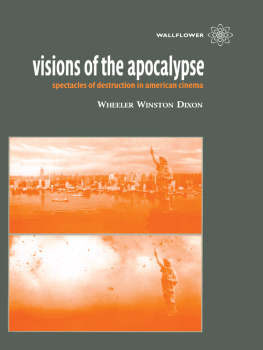


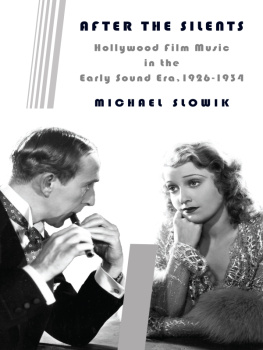
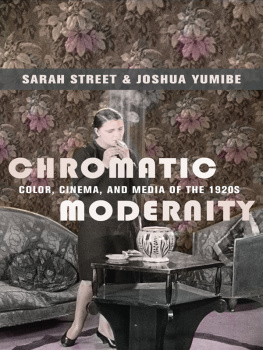
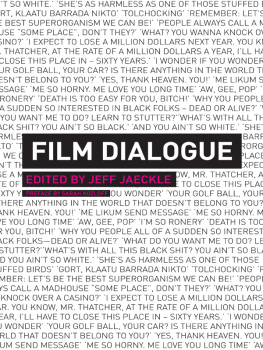

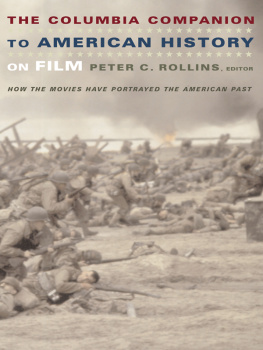
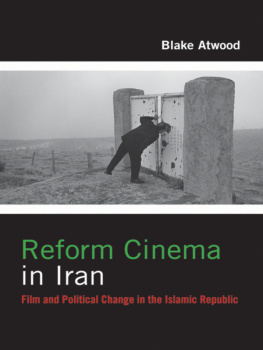
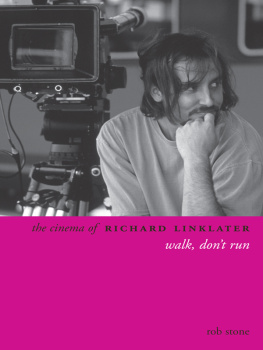
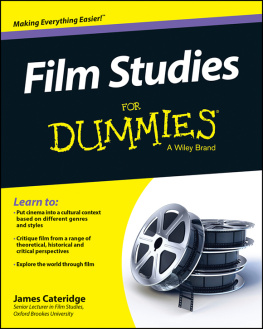


 WALLFLOWER PRESS London and New York
WALLFLOWER PRESS London and New York